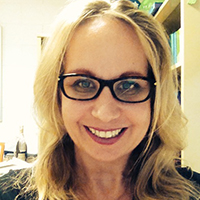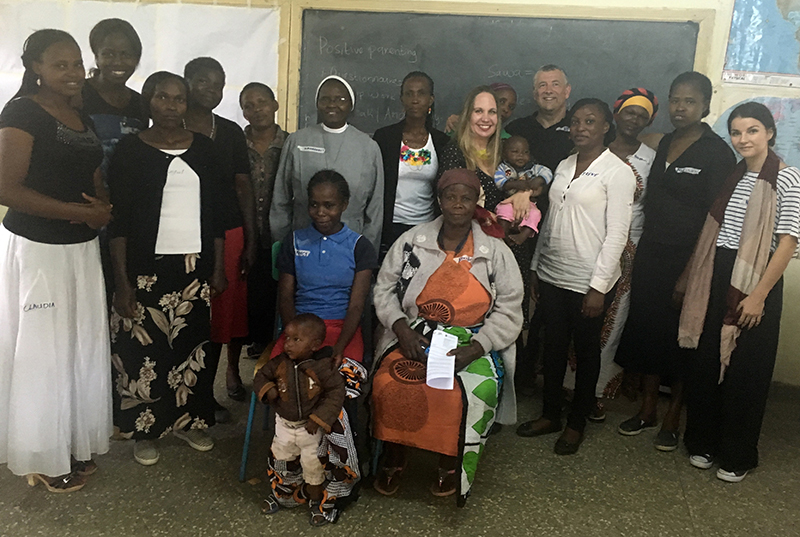 Each month the Faculty of Health and Behavioural Sciences shines the spotlight on a researcher. This month, they spoke to Dr Divna Haslam, research fellow and Head of International Research Development at the Parenting and Family Support Centre.
Each month the Faculty of Health and Behavioural Sciences shines the spotlight on a researcher. This month, they spoke to Dr Divna Haslam, research fellow and Head of International Research Development at the Parenting and Family Support Centre.
What are your key research interests?
My work has a very applied focus and most of my research has an end goal of enhancing the lives of children and families. I’m particularly interested in parenting and the workplace. For example, I have done work looking at how employees manage competing work and family demands, what organisations can do to support their employees as well as examining people’s experiences of balancing work and family. I’m also interested in parenting across cultures especially in low resource settings such as highly deprived families in countries across Africa and Asia.
Can you share some of your career highlights so far?
 My most memorable career highlight has been evaluating the Triple P Positive Parenting Program in Africa. I’d worked for many years with the Triple P program but only with parents in Western countries. We received some funding to examine if Triple P (which was developed here at UQ) would be seen as relevant by parents living in informal settlements (slums) in Nairobi, Kenya. Working with these families who had nothing but were so grateful to have the opportunity to learn positive parenting strategies was a pretty special experience. It also taught me that our own assumptions might not be correct. I thought these parents would be too busy thinking about finding their next meal to focus on a positive parenting program especially one developed in a high income country but the take away from that research was how much these parents want and need parenting support programs.
My most memorable career highlight has been evaluating the Triple P Positive Parenting Program in Africa. I’d worked for many years with the Triple P program but only with parents in Western countries. We received some funding to examine if Triple P (which was developed here at UQ) would be seen as relevant by parents living in informal settlements (slums) in Nairobi, Kenya. Working with these families who had nothing but were so grateful to have the opportunity to learn positive parenting strategies was a pretty special experience. It also taught me that our own assumptions might not be correct. I thought these parents would be too busy thinking about finding their next meal to focus on a positive parenting program especially one developed in a high income country but the take away from that research was how much these parents want and need parenting support programs.
Has your career taken you to any interesting, far-flung locations?
I’m lucky that my work has involved travelling to many interesting locations across the globe from the peri- urban slums in Kenya, to China and even up to the arctic circle in Canada. I'm adventurous and make a point to engage in local customs so I have eaten things like mopane (worms) and even “mineral dirt” all as a part of work trips. I had no idea when I embarked on a research career that it would involve such exotic travel but it’s a very nice bi-product. For one trip to Africa UQ health and safety and I sat down to anticipate all potential risks so we could ensure employee safety. We thought we had identified all potential risks but it turns out we forgot to anticipate a lion making his way to a main road in Nairobi! It didn’t impact us at all but it made me realise you can never plan for everything!
What inspired you to pursue a career in academia?
Academia took me by surprise. I started out with the goal of becoming a clinical psychologist. The UQ clinical program is great and I got my endorsement but after a few years of private practice I realised I could make a much bigger difference conducting research and developing interventions that could impact whole populations of parents rather than working with families one on one. I’ve never looked back.
What advice would you give to someone thinking about a research career?
Research is an exciting career, so if you are interested go for it! Find an area you are interested in and then publish early and often. Also develop collaborations. Research is competitive but working with colleagues you admire keeps the excitement alive.
What are your interests outside of work?
After many years of being a parenting researcher I’ve just had my first child. The saying goes “Before I had children I had plenty of theories and no children. Now I have children but no theories” but I haven’t found that to be the case. For me the research I’ve done has prepared me well for this new adventure!



